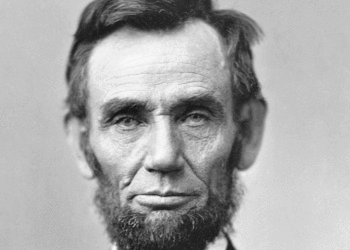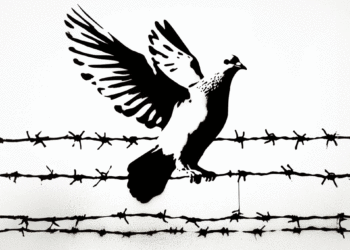We have lost our bearings, our cherished values that at one time distinguished Jews for upholding the highest ethical standardsÂ
By RABBI ALEXANDER DAVIS
As the initial shock of the Madoff scandal slowly recedes many questions are left in its wake: How could this happen? How much lower can we sink? What must anti-Semites think of this story? Anger, sadness, embarrassment and shame fill me with questions.
But before we assign blame, before we lash out in frustration or crumble in despair, one thing must be made clear: Those victims who have suffered tremendous losses at the hands of Bernard Madoff should know that as they have stood by the Jewish community, so will we stand by them. Before we condemn the guilty, we reach out to the innocent reminding them they are not alone.
Soon commissions will be established; investigations will be conducted. But for me, one particularly uncomfortable question gnaws at the back of my mind: Who is responsible?
It is easy to blame the perpetrator. It’s easy to feel compassion for the victims. But I am stalked by the words of the Prophet Jeremiah: “From the least of them even to the greatest of them, everyone is greedy for gain. From the prophet to the priest, everyone deals falsely” (6:13). Jeremiah implies that while Madoff may have been caught, all of us share some of the guilt. And I am afraid he is right.
Among the Torah’s proscriptions for creating a holy society we read: “You shall not steal; you shall not deal deceitfully or falsely with one another” (Lev. 19:11). No less than kashrut, no less than helping the needy, the Torah insists on honesty in business. This is affirmed by the rabbis who taught that one may not steal even so much as a penny; one may not steal even with the intent to repay double!
While the Torah’s verse speaks directly to thieves like Madoff, Samson Raphael Hirsch (1808-1888, Germany) points the finger in a different direction – at us. The command, “You shall not steal. You shall not be deceitful,” etc., is written in the plural, Hirsch teaches, not because these transgressions could be practiced by an entire society. Instead, the plural serves as a warning against “such unlawfulness and such dishonesty becoming so interwoven into ordinary daily business and social life, that they can become the ruling characteristic of a people, losing any stigma of something to be avoided.”
We have failed to heed the Torah’s warning. From Postville to Palm Beach, we have created a society in which deception and falsehood have become commonplace, almost acceptable. And not just the Madoffs and Rubashkins amongst us. Everybody. We have tolerated excess. We have given in to greed. We expect lies. In short, we have enabled crooks by allowing fraud and deception to become our national character trait. We have lost our bearings, our cherished values that at one time distinguished Jews for upholding the highest ethical standards.
We Jews love to talk about tikkun olam, our obligation to repair the world. But before we can repair the damage done “out there,” we had better start the repair work in our own community. We need tikkun hanefesh, to repair our own lives in order to repair the world.
Commentating on our verse, David Zvi Hoffman (1843-1921, Germany) wrote that a community must create a moral climate that will make it easier for an individual to do what is right and make it less socially acceptable to sin. How?
We must establish a culture in which a hero is one who overcomes the temptation to cheat; in which success is measured by menschlichkeit; in which happiness is determined not by what but by whom we have in our lives. We must build a community in which modest B’nai Mitzva celebrations communicate a message of responsibility and commitment rather than indulgence and entitlement; in which Jewish teachers with whom we entrust our children are valued as much as managers to whom we entrust our portfolios.
We must create a society in which making a good name is not compromised by how we make a living; in which we are as honest in business as our parents expect of us and our Torah demands of us.
On one hand the Madoff story has highlighted the great generosity of Jewish philanthropists. More significantly, however, it has cast a dark cloud over the Jewish community as a whole – not just Madoff but everyone. This is a time, therefore, to examine not only our life savings, but our spiritual accounts and our social capital that give meaning to our lives.
Hirsch writes that a community built up by “unfair dealing, unreliability, untruthfulness, untrustworthiness” stains itself and desecrates the name of God that we as a people are to bear. We have been sent into the world as God’s People, “to show the nations a pattern of a community built upon justice and truth and trustworthiness.” It will take every one of us to achieve that vision.
***
Alexander Davis is the senior rabbi of Beth El Synagogue in St. Louis Park.




















